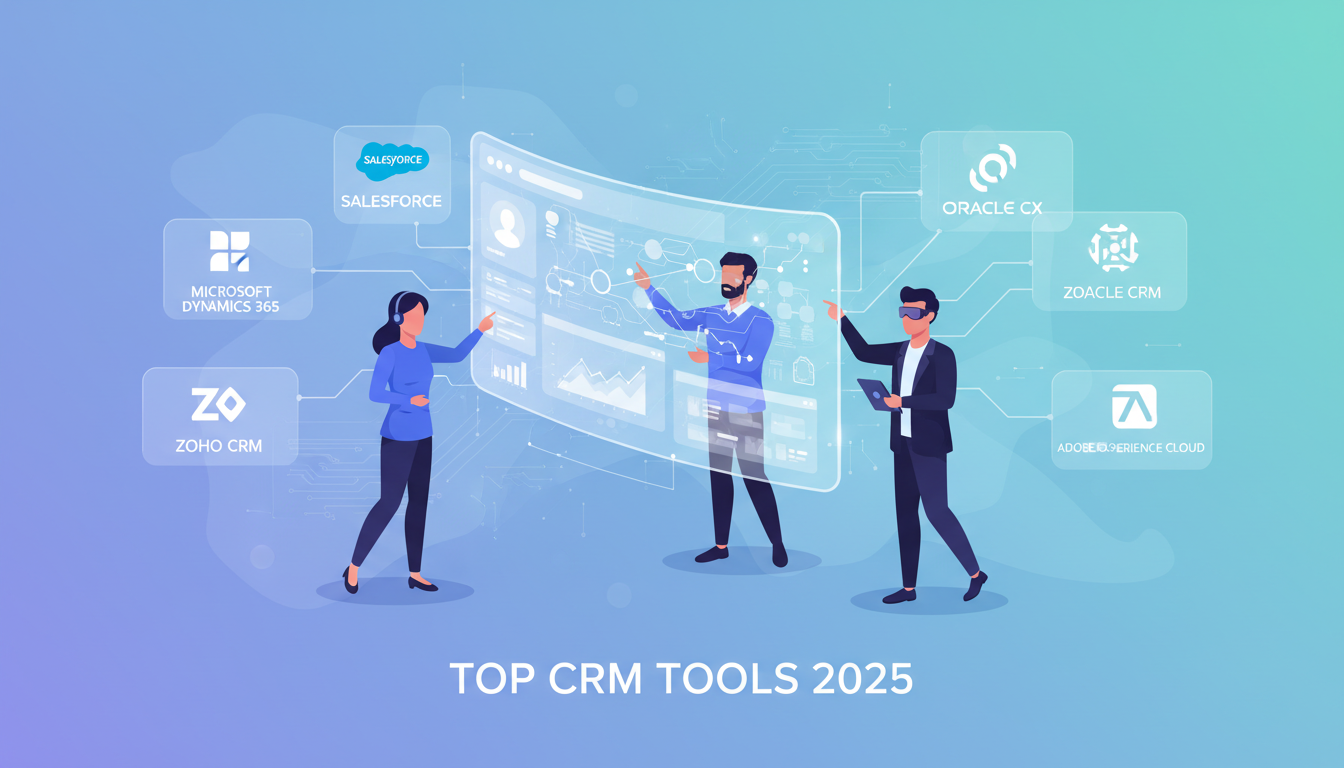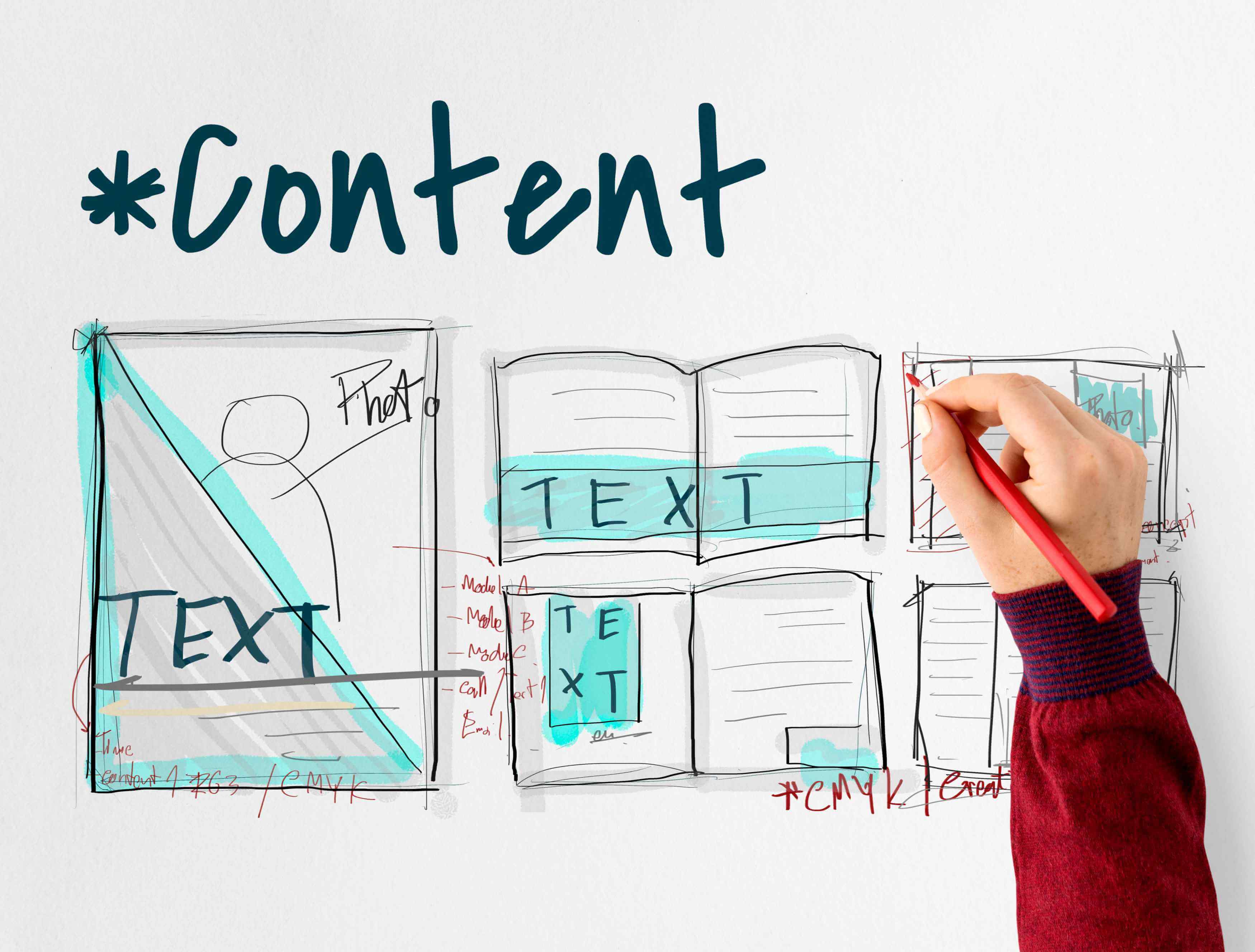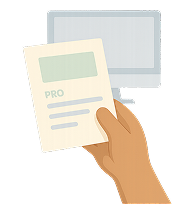In today's digital age, where social media and instant messaging take the forefront, the importance of email marketing may be questioned. However, email marketing still maintains its status as a fundamental tool for businesses. Sometimes a brief and on-point email content is more effective in driving sales than a long blog post. From commercial messages to promotional emails, email marketing comes in many forms and ensures loyal customers for your brand. It is a call for action to your potential customers and a constant reminder of your brand to your existing customers. This comprehensive guide delves into the fundamentals of email marketing, providing beginners with the necessary information for success in this field. Explore the reasons why email marketing is indispensable, including reaching wide audiences, cost-effectiveness, personalization, and a focus on conversion. Discover why these elements make email marketing an essential strategy for businesses and start building up a compelling email campaign.
Note that you can find the perfect marketing agency for your business with just a click. Discover the Best Digital Marketing Agencies, see the details of Best Digital Marketing Agencies in Amsterdam. See our other marketing contents; Empower Your Small Business with a Digital Marketing Agency, What Does a Digital Marketing Agency Do, Marketing Strategy of Tesla & Best Digital Marketing Tools.
Why E-mail Marketing is Important for Your Business?
There are many benefits of email marketing, from ensuring customer loyalty to building up a recognizable brand persona. Email marketing is like having a direct chat between your company and people who are interested. Thus, successful email marketing campaigns are a must for many factors, from sustaining your customer loyalty to enhancing your digital marketing strategy. A successful email campaign helps you with.
- Reaching People
Email marketing makes it possible for you to connect with people instantly, regardless of where they are and what time it is. With more than 4 billion email users everywhere, you can talk to many people who want to get your messages. Promotional messages reach out to your potential customers as well as existing ones and keep the communication going between your brand and email clients.
- Not Expensive
Digital marketing could be costly at times. However, email marketing is a cheap way to tell people about your business compared to other ways, and it can work well if you're careful with it.
- Making it Personal
Email marketing makes it possible for you to come up with customized messages for your email subscribers. You can change your messages based on what people like, and send them interesting content. Email personalization is vital for your brand to drive sales, and help you have new subscribers.
- Getting Results
Email marketing stimulates an instant call to action. It gets more people to look at your website, telling them about a product, or helping them buy something.
Now that we know why it's important let's talk about the basics of email marketing.

Understanding the Basics of E-mail Marketing
To use email marketing in the most effective way, you need to know a few important things, as lined up below.
-
Permission
Marketing emails might be disturbing at times. Your marketing method works better when people give your brand consent that they want your messages. Otherwise, your brand can face spam complaints, and your target audience might be fed up with unsolicited emails. A spam folder filled with your unread mails does not help with your brand reputation. Make sure that promotional emails are sent only after your subscribers give permission to it, and regularly check your client list. It is always safer to initiate the communication with your potential customers through confirmation emails, and enhance your brand reliability.
-
Kinds of E-mails
Email marketing provides marketeers with more than one option. There are different types of marketing emails that you can send, like newsletters, sales emails, informative emails, and automated emails. Each kind works for a different goal, and helps you achieve what you target in marketing.
-
What Makes a Good E-mail
Email marketing might seem simple, and even outdated at times. However, among various marketing channels that are popularizing day by day, email marketing is still relevant. One should take into consideration many factors to come up with a successful email marketing campaign. You have to make sure that your emails include relevant content, are interesting and appealing for your potential customers, and even enable a call to action. Do not forget that a good email has a compelling subject line that instantly drives attention, an interesting content to read, a clear focus, and an elaborate design. Sending emails is not enough: you need to know your key metrics, and drive your campaign in accordance with elaborate data analysis. Keep reading this article, and create email campaigns that are perfect for your audience and brand recognition. Now that you know the basics let's see how to make a good email marketing plan. Now that you know the basics, let's see how to make a good e-mail marketing plan.

Building an Effective E-mail Marketing Strategy
Email marketing remains a crucial tool for businesses to communicate with their audience, strengthen relationships, and boost conversions. Successful email campaigns are keys in building a solid brand persona, and establish your name within a competitive market. To ensure optimal results from your email marketing campaign, it is essential to craft a well-defined strategy. Let's explore the key components of a successful email marketing strategy:
1. Define Your Goals
When outlining an effective email marketing strategy, having an ambitious and clear-cut goal is vital for your road to success. Clearly outline your objectives, whether it is increasing sales, driving website traffic, or nurturing leads. These goals will shape the content and structure of your email campaigns and help your business steadily grow.
2. Know Your Audience
Email marketing enables your brand to communicate with global email users regardless of time and space. Develop buyer personas to understand your target audience's preferences, pain points, and behaviors. This knowledge enables you to personalize your messaging and connect with subscribers on a deeper level. Do not forget reminding your customers to check their spam folder on a regular basis!
3. Build Your E-mail List
Implement strategies to grow your email list, such as offering valuable content in exchange for subscriptions, optimizing your website for sign-ups, and leveraging social media to drive traffic to your landing pages.
4. Create Valuable Content
Craft engaging and relevant content that resonates with your audience. Provide value through informative articles, exclusive offers, and personalized recommendations.
5. Design an Effective E-mail
Pay attention to the visual design of your emails, ensuring they align with your brand identity and are optimized for both desktop and mobile devices. Use eye-catching images, concise copy, and clear calls to action.
6. Automate and Personalize
Utilize automation tools to send targeted campaigns based on subscribers' actions and preferences. Personalize your emails by addressing recipients by their name and incorporating dynamic content.
Once you've implemented your strategy, it's essential to leverage the right email marketing tools to streamline your efforts and maximize efficiency.

Do you want to boost your performance marketing but don't know where to start? Begin with discovering Best Performance Marketing Agencies.
E-mail Marketing Tools: Powerful Instruments for Campaign Management
There is an array of effective email marketing tools available to help you craft an impactful communication strategy and build stronger connections with your audience. It is essential to know the technicalities of your email service provider, and and utilize the right tools for a craftful marketing strategy. Email marketing campaigns are effective in ensuring customer loyalty. Here are some popular tools that will assist you in managing your email marketing campaigns effectively:
-
Mailchimp
It is a well-known email marketing tool with its user-friendly interface and extensive feature set. Mailchimp offers list management, automation workflows, and detailed analytical data.

-
Constant Contact
Standing out with its drag-and-drop editor, customizable templates, and advanced segmentation capabilities.

-
GetResponse
A flexible email marketing platform that offers various features, including landing page creation, A/B testing, and marketing automation.

-
Campaign Monitor
Recognized for its high-quality email marketing templates, dynamic content capabilities, and advanced analytics, Campaign Monitor is an excellent choice to enhance your brand's email marketing strategy, especially for businesses placing importance on template quality.

E-mail marketing tools can help make your campaigns specific, engaging, and effective for your target audience. However, before sending out your emails, optimizing your design is a critical step to ensure maximum impact.
Optimizing Your E-mail Design for Maximum Impact
You may think that in email marketing, that is written content-based, visual design does not matter. However, this is a very common misunderstanding. The visual appeal of your emails plays a crucial role in enhancing your email marketing performance: it captures your audience's attention and drives engagement to your services. Here are some tips for optimizing your e-mail design:
Keep it simple: Directness is the key for a successful email marketing plan. Use a clean and uncluttered layout that highlights your key message and arises a call to action. Embrace white space to allow for easy scanning.
Mobile-responsive design: With an increasing number of people accessing emails on their mobile devices, it's essential to use a responsive design that adapts to different screen sizes.
Use eye-catching visuals: Incorporate relevant images and videos that enhance your message and draw the reader's attention. However, ensure that the file sizes are optimized to prevent slow loading times.
Choose legible fonts and colors: Use fonts that are easy to read, and ensure that your font colors contrast well with the background. Stick to a consistent color scheme that aligns with your brand.
Segmenting your email list allows you to send targeted campaigns to specific groups of subscribers, resulting in higher engagement and conversions.

Segmenting Your E-mail List for Targeted Campaigns
Email marketing makes you appeal to a broad range of individuals from different backgrounds. However, not every group of people are attracted to same kind of content. The relevant content for every group of individuals depends on some factors that are under your control.
Thus, you should segment your email list and make sure that your marketing campaign has a clear focus. Segmenting your e-mail list involves dividing your subscribers into smaller groups based on specific criteria. Here are a few ways to segment your list:
- Demographics
Segment your list based on age, gender, location, or any other relevant demographic information.
- Purchase History
Send personalized emails based on the products or services subscribers have purchased in the past.
- Engagement Level
Create segments based on how engaged subscribers are with your emails. This allows you to tailor campaigns for different levels of interest. Segmentation enables you to provide more personalized and targeted content to your subscribers, ultimately increasing the effectiveness of your email marketing efforts.

Measuring and Analyzing E-mail Marketing Metrics
To evaluate and enhance the success of your email marketing strategy, it is crucial to measure and analyze specific metrics. Be aware of your key metrics, and try to adjust your email marketing plan in line with what these metrics tell you. These metrics can help you understand vital concepts such as interaction, open rate, click-through rate (CTR), and conversion rate of your campaigns.
-
Open Rate
The open rate signifies how many of the e-mails you sent were actually opened. A higher open rate is associated with attention-grabbing subject line and lines and effective sender name usage. Understanding how frequently your subscribers open your emails can help evaluate engagement in your content and strategy.
-
Click-Through Rate (CTR)
CTR measures the percentage of recipients who clicked on links within your e-mail. A higher CTR indicates that your content and calls to action are successfully engaging your audience. It's important to consider this metric to understand which links are attracting more attention and which content is more effective.
-
Conversion Rate
The conversion rate gauges the success of your email campaigns in achieving desired outcomes. This helps you understand which actions your subscribers took through e-mail. For example, making a purchase, filling out a form, or signing up for a webinar.
-
Bounce Rate
Bounce rate reveals how many of your sent e-mails failed to be delivered. Monitoring the bounce rate is crucial for maintaining the accuracy of your e-mail list and reaching the correct target audience.
-
Unsubscribe Rate
Unsubscribe rate indicates the percentage of subscribers who opted out of receiving your emails. Analyzing this rate is important to understand if there are issues with your content or if adjustments are needed to retain subscribers.
Regularly analyzing these metrics allows you to refine your e-mail marketing strategy continually and optimize future campaigns for better results. Remember, understanding the nuances of these metrics empowers you to tailor your approach for a more effective e-mail marketing strategy.

In which Areas do E-mail Marketing Agencies Provide Services to Their Clients?
An efficient email campaign is sometimes hard to achieve. However, there are many email marketing agencies to help your marketing campaign thrive. These agencies provide brands with a wide range of email marketing tool, from creative templates to valuable insight with clear-cut subject lines.
Email marketing agencies specialize in developing, implementing, and optimizing their clients' email marketing strategies. They include a devoted team of experienced email marketers, helping you get one step ahead in the competition. They typically offer a range of services to help clients manage their e-mail marketing efforts effectively.
With the help of an experienced email marketing manager, it is practical and simple for your brand to put up a solid marketing strategy. Here are the services that email marketing agencies commonly provide:
- Strategy: Email marketing agencies analyze their clients' business goals to create strategies tailored to their needs. These strategies often focus on customer targeting, content strategies, send timing, and personalization.
- Content Creation: Email marketing agencies work with creative writers, designers, and content specialists to produce attention-grabbing and effective e-mail content. This helps clients deliver personalized and interactive content to their audience.
- List Management: E-mail marketing agencies develop strategies to build, expand, and maintain their clients' e-mail lists. This includes activities such as creating permission-based lists, segmentation, and ongoing list updates.
- Analysis and Improvement: Agencies measure and analyze the performance of sent e-mail campaigns. This analysis includes metrics such as open rates, click-through rates, conversion rates, and other key indicators. The data gathered is then used to enhance future campaigns for better results.
- Technology Utilization: Agencies specializing in e-mail marketing platforms, automation tools, and other technological solutions help clients choose the most suitable tools and use them effectively.
- Legal Compliance: E-mail marketing agencies ensure that their clients operate in compliance with legal regulations and privacy policies. They also develop permission-based marketing strategies to maintain ethical practices.
- Reporting: Agencies provide clients with regular reports on campaign performance. These reports assist clients in understanding the interaction and success of their campaigns.
E-mail marketing agencies generally focus on strengthening marketing strategies to help clients manage their e-mail marketing efforts more effectively and efficiently.
FAQ
Why is email marketing important for your business?
Email marketing is important for businesses because it helps ensure customer loyalty, build a recognizable brand persona, and drive sales. It allows for direct communication with interested individuals, making it a highly effective marketing tool. Email marketing can reach a wide audience, is cost-effective compared to other marketing methods, and allows for personalized messages. This strategy also helps in maintaining a constant reminder of your brand to existing customers and encourages potential customers to take action. Overall, successful email marketing campaigns enhance your digital marketing strategy and contribute to business growth.
What are the basics of email marketing?
The basics of email marketing include obtaining permission from recipients, understanding different types of emails, and crafting effective emails. It is crucial to have consent from your audience to avoid spam complaints and maintain a positive brand reputation. Email marketing offers various options such as newsletters, sales emails, informative emails, and automated emails, each serving different goals. A good email should include relevant content, an engaging subject line, clear focus, and an appealing design. Additionally, understanding key metrics and analyzing data are essential for optimizing email marketing campaigns.
How do you build an effective email marketing strategy?
To build an effective email marketing strategy, start by defining clear goals, such as increasing sales or driving website traffic. Understand your audience by developing buyer personas to tailor your messaging. Grow your email list through strategies like offering valuable content for subscriptions and leveraging social media. Create valuable content that resonates with your audience, ensuring emails are visually appealing and optimized for both desktop and mobile devices. Utilize automation tools for personalized and targeted campaigns, and regularly analyze your performance metrics to refine your strategy for better results.
What tools can help manage email marketing campaigns?
Several tools can assist in managing email marketing campaigns effectively. Mailchimp is known for its user-friendly interface and comprehensive features like list management and automation workflows. Constant Contact offers a drag-and-drop editor and advanced segmentation capabilities. GetResponse provides landing page creation, A/B testing, and marketing automation. Campaign Monitor is recognized for its high-quality templates and advanced analytics. These tools help streamline email marketing efforts, making campaigns more specific, engaging, and effective for the target audience.
Why is segmenting your email list important?
Segmenting your email list is important because it allows for targeted campaigns that resonate with specific groups of subscribers, resulting in higher engagement and conversions. By dividing subscribers based on demographics, purchase history, or engagement levels, you can personalize content to match their interests and behaviors. This targeted approach ensures that recipients receive relevant messages, which increases the likelihood of interaction and positive responses. Segmentation ultimately enhances the effectiveness of email marketing efforts, leading to better overall results for your campaigns.
"Transform your digital strategy. Connect with expert marketers on Edvido."
















